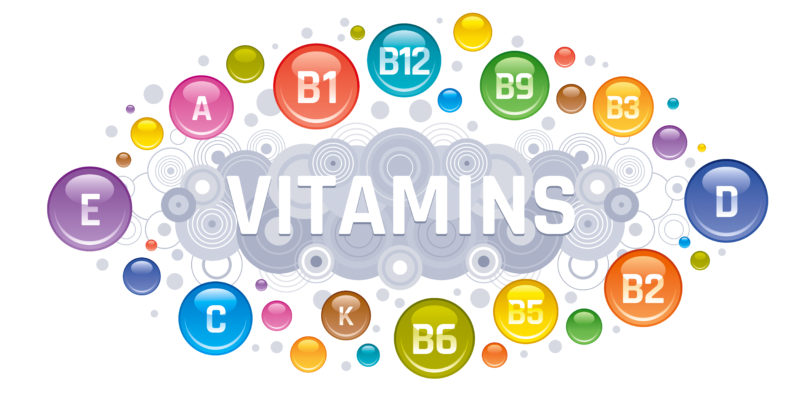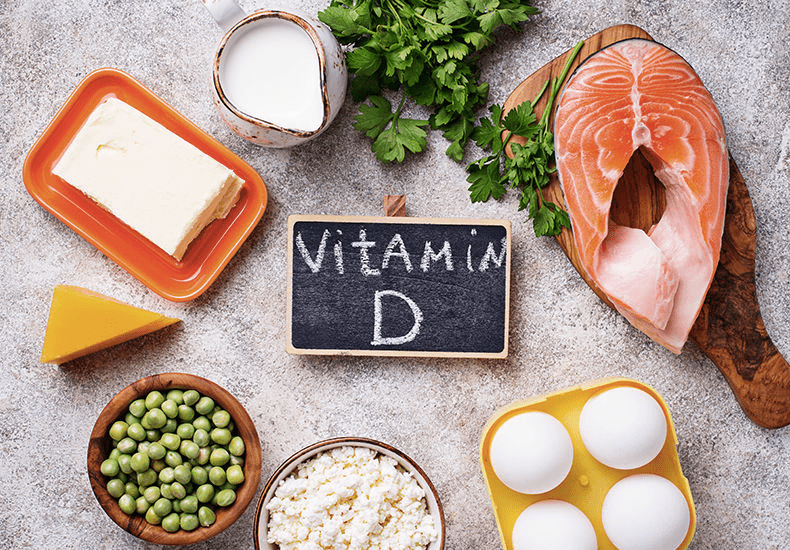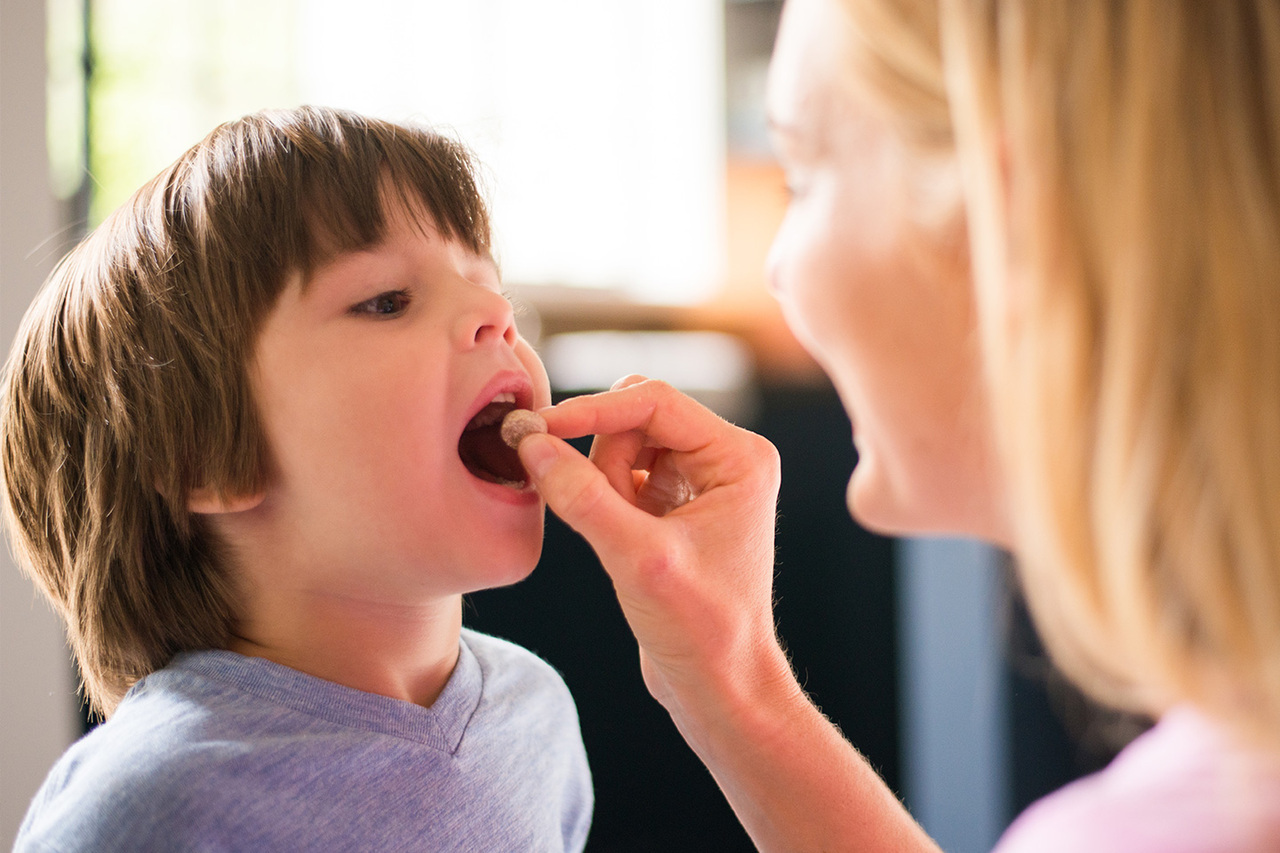If you want your child to grow up to be big and strong, ensuring that they get the proper amount of vitamins during “optimal growing years” is important. A child who sports properly developed bones will always be strong and sturdy, which is why considering the beneficial traits of Vitamin D is important as a parent. You never want to leave a stone unturned when it comes to providing for your children, and that’s why we’re going to talk about Vitamin D deficiency in kids. Strong bones will last well into old age, so not only are you setting your children up for health in the present, but also in the future as well.
All of us love sunlight, it just comes naturally to most. While it’s hard to stop our children from playing outside, there is a lot of Vitamin D present in sunlight; so while we think of all the dangers that could be lurking out there, we’re simply refusing them the Vitamin D they require most. We’re going to talk about the importance of Vitamin D deficiency in kids throughout this article, as well as figure out what you can do to make sure that your kids aren’t going to fall into the “vitamin deficient” bracket. Parenting is tough enough as is, but throwing nutrition into the mix takes things to a whole new level!
You don’t have to be an expert to apply Vitamin D properly, all you need to do is figure out which supplements are required (as well as how you can implement them daily). Children are counting on their parents to help them grow into strong and functional adults, and that’s precisely why you should try and learn more about Vitamin Deficiency in kids.
What Are Vitamins?
Vitamins are organic compounds that can be used to get the proper nutritional value your body requires. This is perfect for children, as they are in optimal growing stages and will benefit from the vitamin supplements much more than anyone else. Since there is always carbon in vitamins, they qualify as an organic substance, so no need to worry about putting foreign materials into you (or your children’s) body. Humans tend to get their vitamins from food, although as of recent, not everybody is going to get what they need.
That’s the big problem because as time marches forwards, we’re simply stuck with the poor diets that we’ve become accustomed to. Some people will stop by a fast food place and get their children dinner, as they’ve been working all day and can’t bother to cook – it’s a simple solution for most individuals, but you’re never going to get the right vitamins that way! Our bodies very rarely make their own vitamins as well, so the only option we have is to count on supplements or other forms of concentrated vitamins.
Sometimes you can have too much of one specific vitamin, but that isn’t the case when it comes to Vitamin D. There’s no way for a child (or even a human) to eat too much Vitamin D, which is why it’s considered one of the most important ones. We need as much of it as we can get as humans! There aren’t a lot of foods that have a rich source of Vitamin D, which is why our bodies can gather it from sunlight – if we weren’t able to do that, we probably wouldn’t get our required amount of Vitamin D daily.
Are Vitamin Supplements Expensive?
The price is going to vary from brand to brand, but putting a price on the health of your children likely isn’t ideal. It doesn’t matter how much they cost, but regardless of your financial situation, there will be an affordable option for you. There are plenty of producers out there who cater to the “premium” audience, but there are also companies out there producing vitamins that are perfectly priced for families. Whether you want to focus on quality or not is irrelevant, as you should always be purchasing the best available option; just remember that there are many different choices, and you should do your research accordingly.
How Much Vitamin D Will My Children Need?
When it comes to measuring the number of Vitamins required daily, you’ll be using IU (International Units) to establish how much you need. The amount is going to vary based on how old your kids are, as well as how at-risk they could be when it comes to Vitamin D deficiency.
Younger than 1-year old – If your kids are younger than 1-year old, they will require 400 IU of Vitamin D daily. Traditional baby formula products are going to offer up 400 IU per liter, so those who are drinking at least 32 ounces of formula every single day should be just fine. If you are breast-feeding your baby or they take less than 32 ounces of formula daily, you can ask your family doctor about potentially providing your baby with a Vitamin D supplement.
Older than 1-year – Older Kids will require more Vitamin D, as their bodies are growing and are likely larger. Typically, your health care provider will recommend that you give your kids around 600 to 1,000 IU of Vitamin D daily – finding the “sweet spot” is a matter of personal preference and a little bit of testing.
The Importance of Vitamin D Deficiency
Vitamin D may not seem like a big deal at first, as you can just get all that you need from standing outside for 20 minutes, right? Well, if only it were that simple – some cases prevent people from going outside, and if you live in an area that lacks sunlight (or it happens to be winter), it’s going to be a lot harder to get the Vitamin D your body requires. As we’ve stated before, you cannot eat enough foods to get the “proper” amount of Vitamin D in your system, but you can always rely on supplements as well! Vitamin D deficiency can lead to an abundance of different issues, all of which are going to reduce the quality of life for your children.
Want your kids to grow up to be big and strong? Do them a solid and educate them about all of the vitamins in the world. With that being said, many consequences come along with Vitamin D deficiency, which just stresses how important it can be. Some of the most important traits associated with Vitamin D would be:
Vitamin D is very important for both bone and muscle health. If you want your kids to grow up healthy and capable of living a long (and satisfying) life, using Vitamin D supplements daily is your best bet. You can’t always count on your kids to get enough sun every single day to satisfy their Vitamin D needs, but that’s okay – they can still grow up to be big and strong by using Vitamin D supplements and rich foods (which we’ll talk about later).
Vitamin D is naturally created when our skin is exposed to the sun, which is why it’s so hard to enough Vitamin D from our food alone. It really shows how much humans rely on the sun, as our children need to get outside and play if they’re to get enough Vitamin D – that’s why Vitamin D deficiency is so prominent in kids these days, as they spend a lot more time inside playing video games and such. There’s no problem with that, so long as you’ve got a reliable supplement at your disposal.
Children who have very dark skin and are rarely exposed to the sun or even have certain medical conditions may be at risk of having low Vitamin D. If you’ve noticed that your child has darkened skin but hasn’t been outside in the sun for a while, it might be time to talk to your pediatrician or doctor and have some Vitamin D deficiency in kids tests done.
Some kids are going to be more prone to developing Vitamin D deficiency, especially those who have certain medical problems already present. Those who are taking anti-seizure medicines won’t absorb Vitamin D using sunlight, as these medicines block the way our bodies use it. Children who are healing from bone surgery (such as fusions for scoliosis) and those who suffer from obesity, CF (Cystic Fibrosis), bone pain, or even obesity are also at risk.
If your household has been hit with Vitamin D deficiency in kids there is no need to panic, as there are plenty of supplements out there that will make handling this situation simple. Finding a product that you can count on is the important part, but you’ve also got to remember that using said Vitamin D supplement is a daily routine. Try and convince your children to spend more time outside, as well as try and get more Calcium into their diet.
Vitamin D deficiency in kids is a tough task to handle in modern times, but consuming too much Vitamin D can also become an issue. It’s important to keep things consistent, but you never want to overdo it – allowing your child to consume too many Vitamin D supplements is going to cause problems. Finding that perfect balance can be a struggle at first, but once you figure it out, it’s smooth sailing from there.
Vitamin D and Calcium work together like partners, as having the right amount of Vitamin D in your body will allow it to absorb Calcium easier as well. When you want to create a strong base for your child to build their bones on, Vitamin D and Calcium are two of the most important vitamins to keep in mind; it’s perfect because getting Calcium from foods is much easier than doing so with Vitamin D. As long as your kids are out in the sun and eat loads of high-calcium foods (like milk, cheese, and yogurt) they’re bound to grow big and strong.
A lack of fish and dairy, paired with lack of sunlight, can be a direct contributor to Vitamin D deficiency in kids. It’s not always easy to obtain fish and dairy that is high in quality though, which is why using Vitamin D supplements is a necessity for many families. If there is a way you can improve the quality of your child’s’ diet, odds are they’re going to increase the Vitamin D intake as well.
Learn More: Fast Vitamins Facts!
It’s easy to see why using vitamin supplements is important while raising your kid, as they’re going to help them in more ways than one. Even if you haven’t tried vitamins for yourself, the proof is in the pudding (so to speak), as there is a lot of scientific information that backs up the importance of vitamins. We’re going to take a look at a few of those facts here!
Vitamins are essential nutrients, and there are a total of 13 vitamins that modern science has recognized. There are two different forms of vitamins, those being fat-soluble and water-soluble. Our bodies are capable of storing fat-soluble vitamins in the fatty organs, such as the liver and fatty tissues. The fat-soluble vitamins would be A, E, D, and K, all of which can stick around in your body for months at a time.
When it comes to water-soluble vitamins they’re going to operate differently, as they don’t stick around for a long time and your body isn’t great at storing them. As a result, you will likely require a consistent supply of water-soluble vitamins; both Vitamin C and B are water-soluble.
There is a lot of stuff to learn about vitamins, so let’s take a look at some additional facts:
- Cooking vegetables slowly over a long period will reduce the vitamins that they contain
- Humans cannot live without Iron (we need it for oxygen transportation)
- Using too much sunscreen on your children can result in Vitamin D deficiency
- Consuming tea or coffee will prevent your body from absorbing Iron easily
- Vitamin C is perfect for those in need of healing
- Vitamin D is a simple cure for Rickets
- Vitamins should always be stored in a cool, dry place (preferably away from heat/sunlight) or else they might degrade over time
Symptoms of Vitamin D Deficiency in Kids
Identifying the symptoms of Vitamin D deficiency quickly can be important, especially when it comes to the health and safety of your kids. We’re going to look at some of the more obvious signs of Vitamin D deficiency, as well as some symptoms that people might overlook had they known otherwise. Many different issues arise when you’re dealing with Vitamin D deficiency, some of which can impact kids for the rest of their lives. Every single cell in your body has a receptor for Vitamin D, which means it almost acts like a hormone; believe it or not, Vitamin D deficiency in kids is much more prominent than you might think.
A study that was conducted in 2011 stated that about 41.6% of adults in the United States are Vitamin D deficient, which goes to show just how impactful this disorder can be (as almost half the population of the United States is dealing with it). Let’s take a look at some of the symptoms associated with Vitamin D deficiency in kids and see if there is anything you should be worrying about!
Infections/Sickness That Won’t Go Away
Your immune system is going to be more compromised when you suffer from Vitamin D deficiency, which is clearly troublesome for babies and young children. They won’t be able to fight off infections as well, as Vitamin D deficiency directly impacts the cells that fight off infections – if your child becomes sick for a long time (and consistently), low levels of Vitamin D could be a contributing factor. Many studies have shown that Vitamin D deficiency and respiratory tract infections (like bronchitis and pneumonia) are two peas in a pod, so to speak. To maintain your children’s’ immune systems, Vitamin D supplements and other solutions are a must.
Consistent Fatigue
If you notice that your child is always tired or fatigued, Vitamin D deficiency in kids could be contributing to their issues. When you lack Vitamin D your blood levels are lower, meaning you’re going to feel drowsy and fatigued throughout the day – even when you first wake up, they may be a groggy feeling. Your blood levels don’t need to be extremely low for it to impact your energy levels, and if you notice that your child is drowsy and dragging along throughout the day, it could be due to Vitamin D deficiency.
Bone/Back Pain
Traditionally, children aren’t going to complain about bone and back pain, especially during their younger years (where all they really do is poop and cry!). If bone and back pain is present in your children, it could be a direct result of Vitamin D deficiency, or it could just be a contributing factor. Many studies have been conducted that relate Vitamin D to the absorption of Calcium, and how Vitamin D makes bones stronger by allowing Calcium to work its way into the body better. When bone or back pain is present, it could mean that Vitamin D deficiency in kids is preventing them from absorbing the calcium properly.
Depression
Depression is another symptom associated with Vitamin D deficiency, although it might be hard to identify that in children. Moreso reserved for adults dealing with it, Depression and a negative mood can be associated with a lack of Vitamin D. If you notice that your child isn’t as playful and isn’t having as much fun as they usually would, this could be a result of their Vitamin D deficiency. They say that sunshine helps promote happiness, but now they are finally working on the science to back that claims up. Spending a day out in the sun with your kid is going to be enjoyable anyway, the fact that it’s beneficial for their health is the cherry on top!
Impaired Healing of Wounds
Kids are bound to get scraped and scratched throughout their childhood, but when the cuts aren’t healing, it might be a sign that they are suffering from Vitamin D deficiency. Whether it’s after surgery or an injury, wounds that take longer than usual to heal can be a result of Vitamin D deficiency because the vitamin helps promote the production of skin cells. When you have ample amounts of Vitamin D running through your system, wounds will heal in an orderly fashion; if you notice that your child is taking longer to heal after an injury or any kind of surgery (for example, dental surgery), you might want to consider looking into Vitamin D supplements. With all of that being said, there isn’t a lot of research out there associated with impaired healing of wounds and Vitamins D – all we know is that they work together somehow.
Loss of Bone
Bone loss due to a lack of Vitamin D makes sense, as we’ve said numerous times before that the vitamin makes it easier for your body to absorb Calcium. Bone metabolism requires ample amounts of Vitamin D, which is why children who want to grow up big and strong need as much Vitamin D and Calcium as they can (without overdoing it, of course). Sporting low bone mineral density means that your bones aren’t as thick as they should be, and Calcium (along with other minerals) is being lost. If your doctor has concerns about bone loss in your children and they haven’t brought a lack of Vitamin D up, keep that in mind!
Loss of Hair
It seems like Vitamin D deficiency in kids has no boundaries, as even hair loss is something that people have to deal with. Alopecia is a very common disorder than many individuals deal with, whether they’re young or old doesn’t matter – if you notice that your child is losing their hair for no obvious reason, it could mean that Vitamin D deficiency is present. Alopecia itself is an autoimmune disease and can be identified by significant hair loss all over your body (mainly the head). It’s also something that is associated with Rickets, a bone softening disease that inflicts itself on children who lack Vitamin D.
General Muscle Pain
Muscle pain is a big problem in those who suffer from Vitamin D deficiency, especially if you’ve got a growing child who can’t enjoy a day out in the sun. In both children and adults, muscle pain can be present when their levels of Vitamin D are low, as one study showed that around 71% of people dealing with muscle pain were Vitamin D deficient. The Vitamin D receptor is present in the same set of nerve cells as pain, which are called “nociceptors”. As a result, when your body has a lack of Vitamin D and starts firing those nerves asking for more, it results in general muscle pain that can range from slightly annoying, to completely debilitating.
Supplements for Vitamin D
Fighting Vitamin D deficiency in kids can be as simple as finding the right Vitamin D supplements, or even just identifying Vitamin D rich food that your child enjoys eating. There aren’t too many options to choose from in regards to different products, as there are mainly Vitamin D concentrates that gives you the recommended daily dose without any issues. We’re going to talk about supplements, foods, and other alternative methods that can be used to combat Vitamin D deficiency in kids.
Supplements
You can count on the supplement industry to handle most of your Vitamin D needs, as you can take a supplement that includes Vitamin D3 (which is the preferred form) in it to get the desired effects. This is especially important during the winter months when you won’t be able to get as much sunlight, even if you go outside – children who choose to stay inside year-round will almost always need a Vitamin D supplement to rely on. They come in many forms and can be traditionally found in:
- Liquids
- Softgels
- Gummies
- Tablets
Children are very picky when it comes to the things they are willing to eat. Some kids won’t bother with food once it’s touched another piece on the plate, so you can expect that getting them to eat their Vitamin D supplements is going to be a hassle. While this is usually the case, Vitamin D supplements come in so many options that it’s hard to say no!
It doesn’t matter what your kid prefers, as there is going to be a reliable Vitamin D product out there that is perfect for them. Some kids don’t do well with pills, so they need to use gummy vitamins, whereas other kids can’t take anything solid at all (which is where the liquids would come into play). Despite your needs, Vitamin D supplements will be readily available!
Food as a Vitamin D Source
There are plenty of foods that can help improve upon and Vitamin D deficiency your kids might be going through, which is especially useful if they aren’t a fan of supplements. If you feel like your newborn is dealing with Vitamin D deficiency, you have to be careful and be sure to feed them the right foods – there are many options out there that are both rich in Vitamin D, as well as optimal for a baby to be eating. Newborn babies are still new to the world and have a lot to learn, and the same goes for their bodies; they have very soft digestive systems and that means they should only be given liquid foods.
Some of the best (and easy to make!) foods that are rich in Vitamin D would be:
- Boiled veggies
- Fruits
- Porridge (Rice and Cereal)
- Soups
- Spinach
- Yogurt
- Minced/Mashed Meat
- Millets
These foods aren’t something that you give them once and they’re cured, you have to be consistent with their diet and ensure that you are feeding your kids in proper intervals. Filling up the stomachs with health and Vitamin D rich foods can be critical in the early stages, and if you’re breastfeeding, you should try and do so early in the morning (as well as after lunch and potentially before bed).
Remember that introducing new foods into your babies’ diet can be troublesome, as they have to like the food. They aren’t going to eat something they don’t enjoy, so try everything from the list above and cross off what they refuse to put in their mouths! Fruits and veggies are usually easy enough, as there is bound to be both a fruit and vegetable that your kid is in love with.
Vitamin D Helps Build a Stronger Future
Vitamin D can be a major building block in the development of your kids, as it can be paired alongside Calcium to create the perfect “concoction”. There’s a reason why we’re seeing children grow taller and stronger with every passing year, and that’s because nutrition is only going to get better with time. As long as you’re giving your kids the proper building blocks to develop upon, you’re going to have a strong adult in no time at all!
As we age we become more and more prone to various diseases, but building a strong base to start off with can help prevent that. Don’t be the parent that refuses to do their due diligence and provide their kids with the proper Vitamin D supplements, especially when you notice that they’re showing signs of Vitamin D deficiency. It’s not something you should take lightly, and after reading through this article, you should already be aware of that.
Babies who are being breastfed will likely need Vitamin D supplement drops until they’ve been weaned off and are eating regularly.




